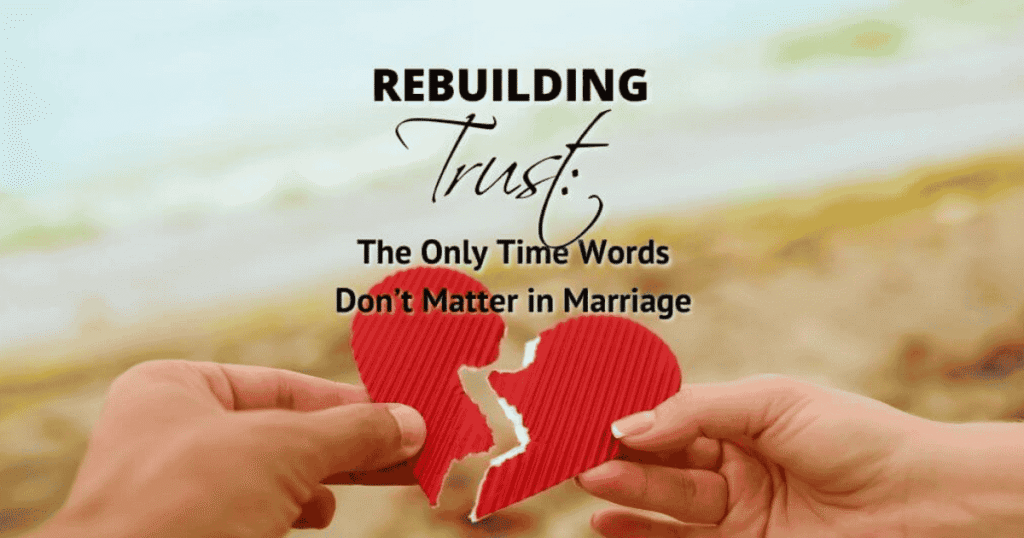
Trust is the foundation of every healthy relationship. Once it’s broken, it can feel impossible to repair. Whether due to lies, betrayal, or repeated mistakes, rebuilding trust takes patience, honesty, and commitment. In this guide, we’ll explore how to rebuild trust in a relationship in practical, human ways.
Key Takeaways
- Trust is the foundation of a healthy relationship.
- Rebuilding trust takes honesty, consistency, and patience.
- Open communication and setting clear boundaries are essential.
- Actions speak louder than words—show trustworthiness daily.
- Professional guidance can accelerate healing if needed.
Why Trust Breaks in Relationships
Understanding why trust breaks is the first step in rebuilding it. Trust can be damaged by:
- Dishonesty: Lying, hiding information, or withholding feelings.
- Infidelity: Emotional or physical betrayal can deeply hurt a partner.
- Broken promises: Failing to follow through consistently.
- Lack of communication: Poor communication can create misunderstandings.
- Past trauma or insecurities: Sometimes trust issues stem from earlier experiences.
Knowing the cause helps both partners address the root problem and prevent it from recurring.
Signs Trust Needs Rebuilding
How do you know trust is low in a relationship? Common signs include:
- Constant suspicion or checking up on each other
- Feeling distant or emotionally disconnected
- Frequent arguments about past mistakes
- Avoiding vulnerability or honesty
- Resentment building silently over time
Recognizing these signs early can save a relationship before the damage deepens.
Step-by-Step Guide on How to Rebuild Trust in a Relationship
Rebuilding trust doesn’t happen overnight. It’s a process that requires effort from both partners. Here’s a clear plan:
1. Acknowledge the Issue Honestly
- Admit mistakes without making excuses.
- Take responsibility for your actions.
- Show genuine remorse and empathy.
Example: Instead of saying, “I didn’t lie, you misunderstood,” say, “I understand why this hurt you, and I take full responsibility.”
2. Open and Consistent Communication
- Be transparent about your thoughts and feelings.
- Share updates about your life openly.
- Listen actively to your partner’s concerns without interrupting.
3. Make Amends Through Actions
Actions speak louder than words. Show trustworthiness by:
| Action | Example |
| Consistency | Follow through on promises, big or small |
| Reliability | Be punctual and dependable in daily life |
| Honesty | Admit mistakes immediately instead of hiding them |
| Support | Offer help and reassurance when your partner struggles |
4. Set Clear Boundaries
- Discuss expectations and limits together.
- Agree on rules to prevent future breaches.
- Respect each other’s personal space and privacy.
5. Give Time and Patience
- Understand that healing is gradual.
- Avoid pressuring your partner to forgive instantly.
- Celebrate small improvements along the way.
6. Seek Professional Help if Needed
Sometimes, trust issues run deep. Couples therapy or counseling can help:
- Navigate complex emotions safely
- Improve communication skills
- Build strategies to rebuild emotional intimacy
Tips to Strengthen Trust Moving Forward
Even after trust is rebuilt, maintaining it requires effort. Try these tips:
- Transparency: Share your feelings openly every day.
- Consistency: Small, repeated actions reinforce reliability.
- Gratitude: Appreciate each other’s efforts publicly and privately.
- Empathy: Always consider your partner’s perspective.
- Forgiveness: Holding onto resentment damages long-term trust.
Read more: 11 Psychological Keys to Maintaining Long Term Relationship Satisfaction
FAQs
Q1: How long does it take to rebuild trust?
There’s no fixed timeline. Small consistent actions over weeks or months usually rebuild trust, but deeper betrayals may take longer.
Q2: Can trust be fully restored after cheating?
Yes, it’s possible, but both partners must commit to transparency, counseling, and consistent effort over time.
Q3: How can I forgive my partner after trust is broken?
Focus on understanding, communication, and empathy. Forgiveness comes gradually and doesn’t mean forgetting—it’s about moving forward.
Q4: What if my partner refuses to trust me again?
You can control your actions but not their feelings. Give them space, maintain consistency, and seek professional help if needed.
Q5: Can trust be rebuilt without apology?
Apologies are crucial for acknowledging harm. Without them, rebuilding trust becomes extremely difficult.
Rebuilding trust in a relationship is challenging but possible. By taking responsibility, communicating openly, and showing consistent, trustworthy behavior, couples can restore the emotional connection and create a stronger, more resilient bond. Remember, trust grows slowly, but with dedication, it can thrive again.
Mariam holds an MS in Sociology with a specialization in Medical Sociology and Social Psychology. With a strong academic background and extensive research work in both fields, she brings depth and clarity to complex topics. Her writing explores the intersection of society, health, and the human mind, making academic ideas easy to grasp and relevant to everyday life.


